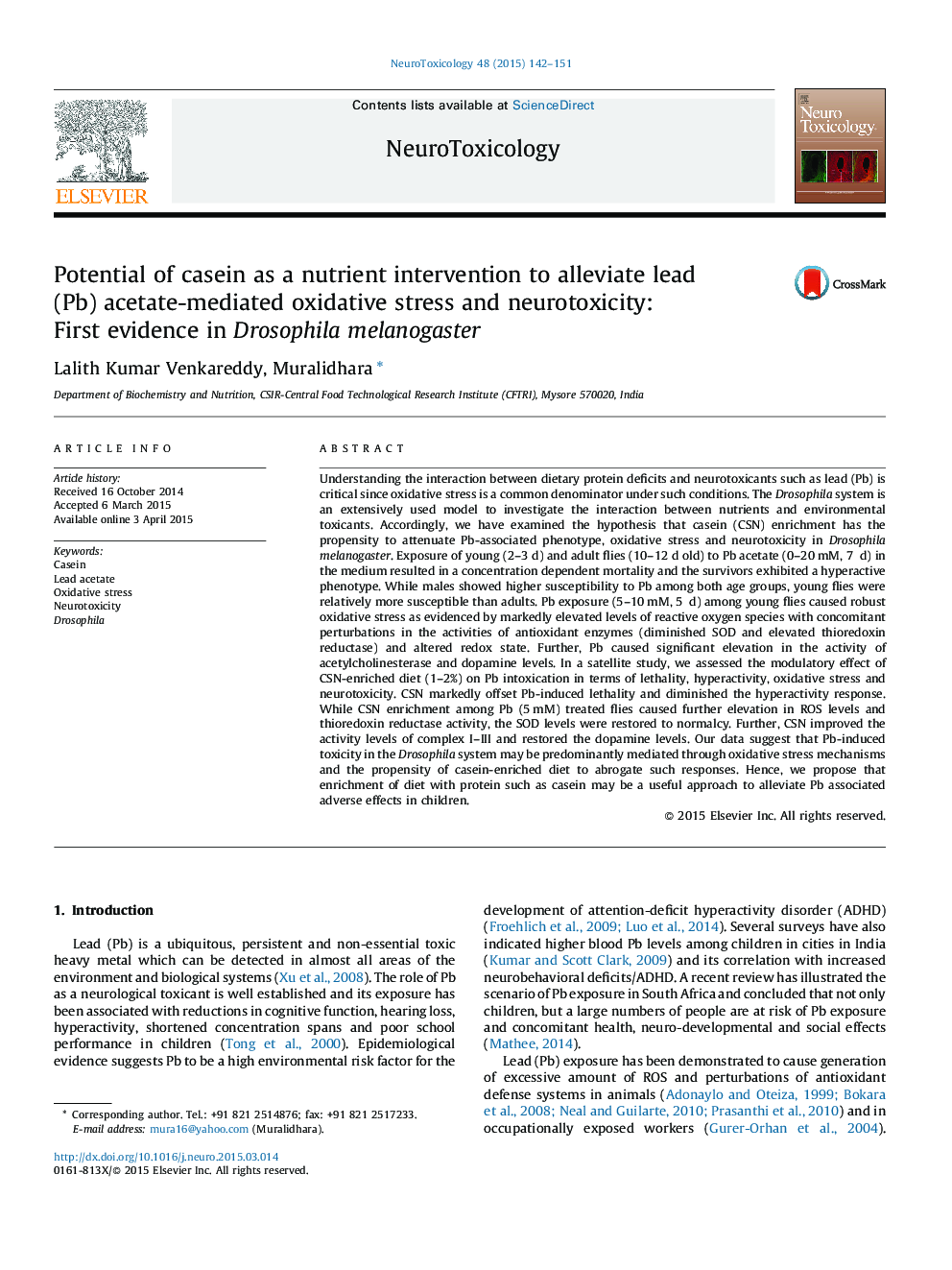| کد مقاله | کد نشریه | سال انتشار | مقاله انگلیسی | نسخه تمام متن |
|---|---|---|---|---|
| 2589527 | 1562046 | 2015 | 10 صفحه PDF | دانلود رایگان |

• Exposure of young/adult flies to Pb resulted in a concentration-dependent lethality.
• Young male flies were relatively more susceptible than adults.
• Pb caused robust oxidative stress elevated AChE activity and dopamine levels.
• CSN markedly offset Pb-induced lethality and diminished the hyperactivity response.
• CSN improved the activity levels of complex I–III and restored the dopamine levels.
Understanding the interaction between dietary protein deficits and neurotoxicants such as lead (Pb) is critical since oxidative stress is a common denominator under such conditions. The Drosophila system is an extensively used model to investigate the interaction between nutrients and environmental toxicants. Accordingly, we have examined the hypothesis that casein (CSN) enrichment has the propensity to attenuate Pb-associated phenotype, oxidative stress and neurotoxicity in Drosophila melanogaster. Exposure of young (2–3 d) and adult flies (10–12 d old) to Pb acetate (0–20 mM, 7 d) in the medium resulted in a concentration dependent mortality and the survivors exhibited a hyperactive phenotype. While males showed higher susceptibility to Pb among both age groups, young flies were relatively more susceptible than adults. Pb exposure (5–10 mM, 5 d) among young flies caused robust oxidative stress as evidenced by markedly elevated levels of reactive oxygen species with concomitant perturbations in the activities of antioxidant enzymes (diminished SOD and elevated thioredoxin reductase) and altered redox state. Further, Pb caused significant elevation in the activity of acetylcholinesterase and dopamine levels. In a satellite study, we assessed the modulatory effect of CSN-enriched diet (1–2%) on Pb intoxication in terms of lethality, hyperactivity, oxidative stress and neurotoxicity. CSN markedly offset Pb-induced lethality and diminished the hyperactivity response. While CSN enrichment among Pb (5 mM) treated flies caused further elevation in ROS levels and thioredoxin reductase activity, the SOD levels were restored to normalcy. Further, CSN improved the activity levels of complex I–III and restored the dopamine levels. Our data suggest that Pb-induced toxicity in the Drosophila system may be predominantly mediated through oxidative stress mechanisms and the propensity of casein-enriched diet to abrogate such responses. Hence, we propose that enrichment of diet with protein such as casein may be a useful approach to alleviate Pb associated adverse effects in children.
Journal: NeuroToxicology - Volume 48, May 2015, Pages 142–151